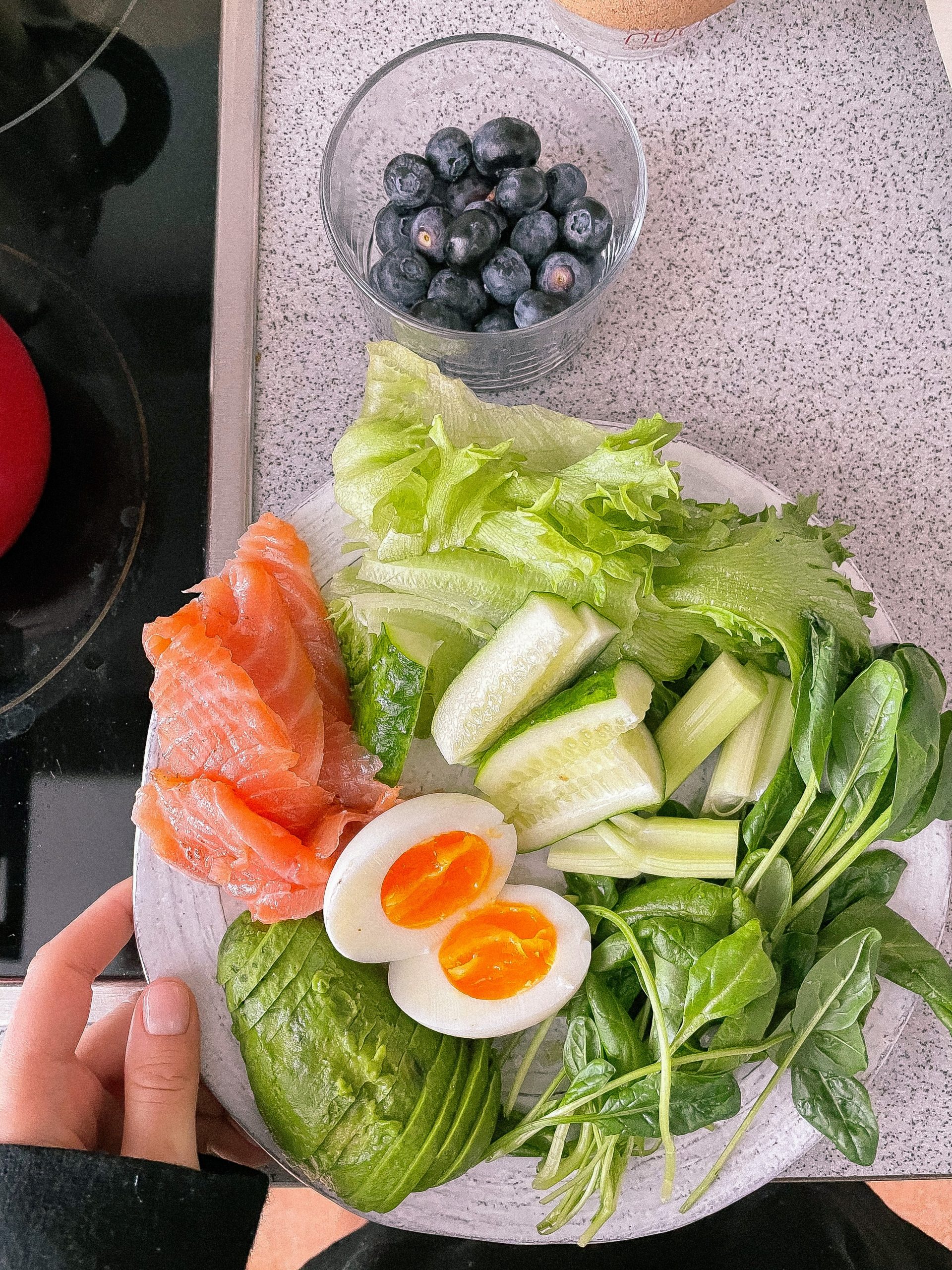The physiology of a pregnant woman is not normal. To remain healthy, functional and happy that body must be fed in a healthy manner…this is the major purpose of guidelines for nutrition in pregnancy
The expression “listen to your body” is among the most overused in the pregnancy-advice industry. And, in reality, it’s very difficult to neglect your body when pregnant; it rebels and begins ordering you about. This is beneficial in several respects – it forces you to sleep early or consume adequate calcium. However, in today’s unnatural food world, where tempting fatty treats are the simplest foods to obtain, this may be detrimental.
 Second, it is also generally recognized that what occurs in the womb does not remain there. Not only can an in-utero intake rich in fat or sugar result in an obese infant, but maternal diet, can have a long-lasting effect on the offspring’s likelihood of developing mental-health problems, disrupted social behaviors, lower cognitive ability, and enhanced sensitivity to stress.”
Second, it is also generally recognized that what occurs in the womb does not remain there. Not only can an in-utero intake rich in fat or sugar result in an obese infant, but maternal diet, can have a long-lasting effect on the offspring’s likelihood of developing mental-health problems, disrupted social behaviors, lower cognitive ability, and enhanced sensitivity to stress.”
Guidelines For Nutrition In Pregnancy: The Perfect Pregnancy Diet
As we discuss guidelines for nutrition in pregnancy we will need to examine what it takes to have a perfect pregnancy diet.
Good nutrition during pregnancy, and plenty of it, is critical for your baby’s growth and development. You can eat about 300 more calories a day than you did prior to being pregnant.
While nausea and vomiting will render this challenging during the first few months of pregnancy, continue to maintain a well-balanced diet and take prenatal vitamins. Here are few suggestions to help you and your baby stay well.
Pregnant Women’s Healthy Eating Objectives
 Eat a range of foods to ensure that you receive enough of the nutrients you need. four servings of dairy products, two to four servings of fruit, four or more servings of vegetables, six to eleven servings of breads and grains, and three servings of protein sources are all recommended regular servings (meat, poultry, fish, eggs or nuts). Consume fats and desserts in moderation.
Eat a range of foods to ensure that you receive enough of the nutrients you need. four servings of dairy products, two to four servings of fruit, four or more servings of vegetables, six to eleven servings of breads and grains, and three servings of protein sources are all recommended regular servings (meat, poultry, fish, eggs or nuts). Consume fats and desserts in moderation.
Choose fortified fiber-rich foods such as whole-grain breads, cereals, beans, noodles, and rice, as well as fruits and vegetables. While it is preferable to obtain your fiber from vegetables, taking a fiber supplement will help you get the amount you need. Psyllium and methylcellulose are two examples. Before beginning some supplements, consult with your doctor. If you take a fiber substitute, gradually increase the quantity you take. This will aid in the prevention of gas and cramping. When increasing the fiber consumption, it is often important to consume plenty of fluids.
When breastfeeding, make sure you are having adequate vitamins and minerals in your diet. To ensure that you are consuming adequate vitamins and minerals every day, you can take a prenatal vitamin supplement. Your doctor will advise you on an over-the-counter brand or administer a prenatal vitamin.
Consume at least 4 servings of dairy products and calcium-rich foods a day to better guarantee that you receive 1000-1300 mg of calcium a day while pregnant.
To get 27 mg of iron a day, consume at least three portions of iron-rich foods per day, such as lean meats, lettuce, beans, and breakfast cereals.
You’ll need 220 micrograms of iodine a day when pregnant to ensure your baby’s brain and nervous system development. Choose from a variety of dairy items, including milk, cheese (especially cottage cheese), and yogurt, as well as baked potatoes, cooked navy beans, and small quantities of seafood, such as cod, salmon, and shrimp (8 to 12 oz per week).
Each day, eat at least one vitamin C-rich food, such as bananas, grapefruits, strawberries, honeydew, papaya, broccoli, cauliflower, Brussels sprouts, green peppers, tomatoes, and mustard greens. Pregnant women need 80-85 mg of vitamin C a day.
Daily, choose at least one decent source of folate, such as dark green leafy vegetables, veal, and legumes (lima beans, black beans, black-eyed peas and chickpeas). To better avoid neural tube defects like spina bifida, a pregnant woman requires at least 0.64 mg of folate every day. Folic acid, or man-made folate supplements, may be an effective choice while pregnant.
Any other day, have at least one source of vitamin A. Carrots, pumpkins, sweet potatoes, lettuce, water squash, turnip greens, beet greens, apricots, and cantaloupe are also high in vitamin A.
Creating The Ideal Pregnancy Diet (Guidelines For Nutrition In Pregnancy)
Anemia is estimated to occur in 35 to 75 percent of Nigerian births, with dietary deficiency during pregnancy being the primary cause. A well-balanced diet that eliminates deficiencies can include enough of the nutrients you and your baby need to stay healthy. Because of the improvements in your body, you may need to add vitamins and minerals in your diet that you were not previously aware of. A healthy diet would supply the body with adequate resources and nutrients to help the kid to thrive and grow normally while still helping the body to adapt to the changes that are taking place.
This ‘guidelines for nutrition in pregnancy’ will not be profitable if we are not very specific in our discourse.
Vegetables and fruits
Fruits and vegetables are the cornerstones of every nutritious diet. Consuming them during pregnancy is strongly recommended due to their high vitamin C and folic acid content, which will help in your baby’s health. Pregnant women can consume at least 70mg of vitamin C everyday, which is plentiful in citrus fruits like oranges, limes, and grapefruits, as well as vegetables like broccoli, turnip greens, and cabbage.
In the other side, folic acid is a form of vitamin that has been shown to help reduce spinal cord and brain birth defects, also known as neural tube defects. To reap the full benefits of folic acid, a daily dose of 0.4 mg is prescribed. Leafy green vegetables including spinach, breads, cereals, and rice are decent sources of folic acid, so consuming a vitamin supplement of at least 400 micrograms of folic acid will help you get the recommended amount. Per day, you can consume 2-4 servings of fruit and 4 or more servings of vegetables.
Grains in their natural state
Whole grains should be included in the pregnancy diet since the basic carbohydrates they provide are the key source of nutrition for the baby. That is why following a keto diet when pregnant is strongly discouraged, since the body may be deprived of the carbohydrates it requires to feed the fetus, and you may have keto flu symptoms as a result.
Whole grains and enriched goods include fiber and other essential nutrients including thiamin, riboflavin, and niacin, which aid digestion and help your baby absorb the nutrients he or she needs to develop. Depending on your weight, 6 to 11 ounces of whole grains a day, such as whole-wheat bread, oatmeal, or rice, will provide you with the nutrients you need.
Dairy Products
When you are pregnant, at least 1000mg of calcium must be taken per day. Without a healthy bones and teeth, muscle would be weak, and without strong muscles, you would be immobile. This could go without saying, but calcium is critically vital for both your health and your baby’s wellbeing. Eating an insufficient quantity of calcium is often increases the risk of osteoporosis in pregnant women. A calcium requirement may be met by consuming 4 regular servings of dairy products. Yogurt, cheese, and milk are excellent sources of calcium.
Although there are many foods that are beneficial during breastfeeding, you can also spend time researching foods to avoid. If you take care of yourself by consuming a nutritious diet, your baby can undoubtedly develop quickly and become stable.
RELATED ARTICLES TO ALSO READ
Guidelines For Nutrition In Pregnancy: What To Eat And What To Avoid
In this section of our guidelines for nutrition in pregnancy we will try to expatiate on what to eat and what to avoid once pregnancy is detected!
Food is more essential before, during, and after pregnancy than at any other point of life. Women, on the other hand, will choose to consume meals from boxes or bags, eat out many days a week, or order pizza to go as long as they obey a few basic eating-for-two nutritional rules. At the very least, a pregnant mother should have the following foods in her daily diet:
- Water (8 glasses)
- Fish, or cooked dried beans, extra-lean meats, skinless chicken, & peas (2 to 3 servings)
- Cereals Nonfat or low-fat milk or milk items (three servings) & 6 servings of whole-grain fortified breads
- Fresh Vegetables & New fruits in 5 servings.
The eating instructions for a stable pregnancy are straightforward and simple. When, when, and how much they consume is a matter of choice, and is often dictated by necessity. If a pregnant woman suffers from morning sickness in the first trimester, she might prefer a snack for breakfast and a large evening dinner, but in the last trimester, when heartburn is more of a concern, she may choose a larger breakfast and a light evening meal. Caffeine (found in coffee, tea, and colas) should be avoided or restricted, as should alcohol and tobacco. Abstinence is the safest option for a woman and no legal tolerance for alcohol has been identified.
Guidelines For Nutrition In Pregnancy: A Weighty Issue
If a pregnant mother cannot gain enough weight, her infant may not gain enough weight, putting the fetus at risk for health issues. In a slim woman, optimal weight gain of 25 to 35 pounds ensures a healthy-sized boy. Women that are underweight should add weight, ideally 28 to 40 pounds. Overweight people should avoid trying to burn off excess body fat during pregnancy because accumulated body fat isn’t what babys are made of. For these women, a moderate weight gain of 12 to 25 pounds is advised. More weight gain than is recommended would not result in bigger or better infants. It would be more challenging to recover a desirable number after launch. The indden secrete to speed up your weight gain, differs from a pound per week in the first weeks of pregnancy to as much as a pound per week in the last weeks of pregnancy.
Folic Acid Is Needed
Nutritionists believe that the mother-to-diet be’s is the greatest source of all vital foods, plus enough levels of vitamins and minerals. The trick is to get plenty. The MRC Vitamin Study at St. Bartholomew’s Hospital in London, for example, discovered that people who took folic acid supplements around pregnancy have a slightly lower chance of giving birth to babies with neural tube defects (NTD), a type of birth defect in which the fetal neural tube that structures the future brain and spinal column fails to close properly.
Fortunately, the United States Food and Drug Administration (FDA) released a rule in 1996 demanding that all enriched grain items, including breads and noodles, be enriched with folic acid. During her childbearing years, every woman should consume at least 400 micrograms of folic acid by diet or supplements.
The Postpartum Diet
Whether or not a woman breastfeeds, the key to post-pregnancy feeding is to eventually restore a desirable body while preserving or replenishing food reserves. Furthermore, since certain babys are prepared while others are unexpected, it’s never too late to start nourishing the next baby by eating a diet abundant in fresh fruits and vegetables, nonfat milk items, whole grains, and protein-rich beans and meats.
Guidelines For Nutrition In Pregnancy: During pregnancy, eat the right foods
While all parents want is a healthy child, research into higher intellect has begun to show some babies are so bright. Have you ever asked that certain babies reach developmental milestones so quickly? We’re talking about babies that hop at nine months, draw a smiley face at nine months, speak in lengthy sentences at 24 months, count past ten at 24 months, and so on. Nobody has ever been able to understand that these babys are able to complete developmental goals so much faster than their peers. Although few are willing to admit it, genetic tests are revealing what a baby truly need to grow the best potential brain. Simply obey these guidelines for nutrition in pregnancy to ensure that your baby is healthy.
Take a Prenatal Vitamin
Taking your vitamins on a daily basis will help ensure that you have the right balance of nutrients for your infant, such as folic acid and vitamin B12 for red blood cell production, vitamin C for collagen production, vitamin D for bone growth, and zinc for brain development.
Consume more & more fruits and vegetables
Vegetables and fruits are healthy for babies. Antioxidants shield the baby’s brain from injury throughout pregnancy. The higher the better for the greatest antioxidant reward: lush leafy vegetables, bananas, and tomatoes. Keep all fruits and vegetables clean, even though they’re unpeeled (as cutting it will drag germs through the flesh).
Guidelines For Nutrition In Pregnancy:Increase Proteins
Right now, your body requires more protein in order to create cells and produce hormones for your developing infant. Increase the protein consumption by ten grams a day. Meat, chicken, and eggs are deemed the best protein sources. Yogurt, boiled eggs, poultry and meat curry are also good sources of protein. Vegetarian expectant mothers will select from soya beans, babyney beans, lentils, broccoli, cabbage, and spinach.
Guidelines For Nutrition In Pregnancy:Pump Up Iron
 During pregnancy the iron consumption should be doubled since iron aids in the delivery of life-sustaining oxygen to your fetus. The problem is that many people are still inadequate before they become pregnant. If the baby is deprived of oxygen in the womb, he or she is more likely to have slow growth and a lower IQ. Request an iron deficiency screening from the specialist. Then include iron-rich items in your diet, such as red meat, chicken, legumes, and fortified breakfast cereal.
During pregnancy the iron consumption should be doubled since iron aids in the delivery of life-sustaining oxygen to your fetus. The problem is that many people are still inadequate before they become pregnant. If the baby is deprived of oxygen in the womb, he or she is more likely to have slow growth and a lower IQ. Request an iron deficiency screening from the specialist. Then include iron-rich items in your diet, such as red meat, chicken, legumes, and fortified breakfast cereal.
The Essence Of Copper
As we gradually conclude this ‘guidelines for nutrition in pregnancy’, let me emphasize the significant of copper in a pregnant woman’s diet. Copper is one of the essential nutrients for brain growth, and tests have shown that it is involved in the development of the hippocampus and dentate gyrus (the higher learning and higher thinking areas in the brain). A pregnant woman will supply her baby with enough levels of copper simply by paying attention to the foods she likes to eat during the day. Cashews, Avocados, Brown Rice, Eggplant, Black Beans, Spinach, Green Beans, Beets, and other crops fall under this category.
Choline Is Essential
At the time when their baby’s brain, the hippocampus, evolves, researchers from the University of North Carolina fed two groups of pregnant mice separate diets. The diet of one party contained choline, while the diet of the other did not. Researchers discovered epigenetic variations on the proteins that wrap genes in cells responsible for the development of new brain cells in the community that did not acquire choline as they examined their brain cells. The two proteins (G9a and Calb1) involved in the formation and maturation of new neuronal cells in the hippocampus were altered in the community that did not obtain choline. Choline can be used in foods such as beef, nuts, and eggs.
DHA(Docosahexaenoic acid) and Its Importance
A child’s brain starts to develop as early as four weeks after conception. As a consequence, planning will start well before a woman becomes pregnant. That’s why it’s important for all women of childbearing age to consume enough of omega 3 fatty acids, including DHA. According to researchers at the Institute of Brain Chemistry and Human Nutrition in London, low birth weight babies are born to mothers who are malnourished during labor. In these children, DHA deficiency has been discovered. A balanced pregnancy diet can have plenty of omega 3 oils with DHA, as brain development issues will last a lifetime. Eating more fatty fish, such as Atlantic salmon, Pacific cod, and tuna, as well as supplementing with high-quality, pure fish oil capsules, or a mixture of the two, is one way to do this.
Avoid consuming alcohol and smoking
Although extreme alcohol abuse during pregnancy is synonymous with foetal alcohol syndrome, even moderate levels of beer, wine, or liquor may damage a baby’s brain. Drinking in moderation will contribute to issues with concentration, memory, recollection, and social skills later in life. Smoking, both aggressive and inactive, will slow the development of your baby’s brain, so avoid it.
Guidelines For Nutrition In Pregnancy: Have Mercury in mind
Fish is beneficial to your baby’s brain. Mercury toxicity of certain fish, on the other hand, could be harmful to your baby’s nervous system. The food and drug administration in the United States urges pregnant women to avoid lobster, tilefish, king mackerel, and swordfish because they have the maximum amounts. Salmon, catfish, tilapia, and shrimp are several low-mercury alternatives. If you must eat canned salmon, pick light tuna, which has less mercury than other fish.
Now that you have gone through these guidelines for nutrition in pregnancy, it is expected that you will not only put what you have gained into practical use but also share your knowledge with others!